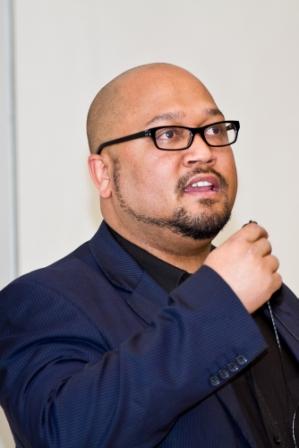
Ndumie Funda, Director and Founder of Luleki Sizwe, said at the Annual Rhodes Teach In, that the justice system in South Africa has failed the LGBTI community, “it does nothing for those who have been violated in this way.”
She gave a talk on Corrective rape in Cape Town as part of the Teach-In focussing on the rights of the LGBTI community in South Africa.
One Friday evening in a township on the edge of Cape Town, a 30 year old black lesbian was almost home when a man she recognised stopped her and asked for a cigarette. She obliged. The man then pushed her into a nearby shack and beat, strangled and raped her repeatedly for five hours. She was raped because she is a lesbian.
This is only one of many stories of how lesbian women in South Africa continue to be violated every day, said Ndumie Funda, Director and Founder an organisation that rescues, supports, nurses, feeds and campaigns for LBT in Cape Town’s black townships.
She said that many cases of violence go unreported because the victims are afraid that the police will either laugh at them or the perpetrator will soon be free to come after them.
South Africa is one of only ten countries in the world to have legalised homosexual marriage and the constitution specifically forbids discrimination on the grounds of sexual orientation. But on the ground, prejudice remains common.
Funda said that as a black lesbian she saw many of her friends in Cape Town being raped, stoned, gay-bashed and nothing was being done about it for a long time and that would tear at her heart. Some young women have been evicted from their homes, kicked out of school and killed because of their sexuality.
These women have been raped, at times under instruction from their families as a means of “curing” them of their sexual orientation. They live in fear as rape and murder become a daily threat in the townships they call home.
Teach-In discussant Eusebius McKaiser said that it is important that Funda and others tell these stories because “these are real lives and real people who are affected by this systemic abuse and violence.” He added that on the one hand we need the justice system to protect women against this kind of violence but on the other hand we need to understand what drives this violence. Otherwise we’ll continue treating the symptoms.
Funda said that some of the men she has spoken to have felt threatened by lesbians, especially “butch” lesbians. Some feel that these lesbians are taking away their women, so they want to “fix” the situation.
Now Luleki Sizwe, the government and other LGBTI organisations across South Africa are working together to put an end to the violence against homosexuals. Funda pleaded with organisations in the Eastern Cape to be more visible and to connect with other organisations in the fight for LGBTI rights. “We need to stand firm for our rights,” said Funda.
By Nompumezo Makinana
Picture by Judith Doubell
